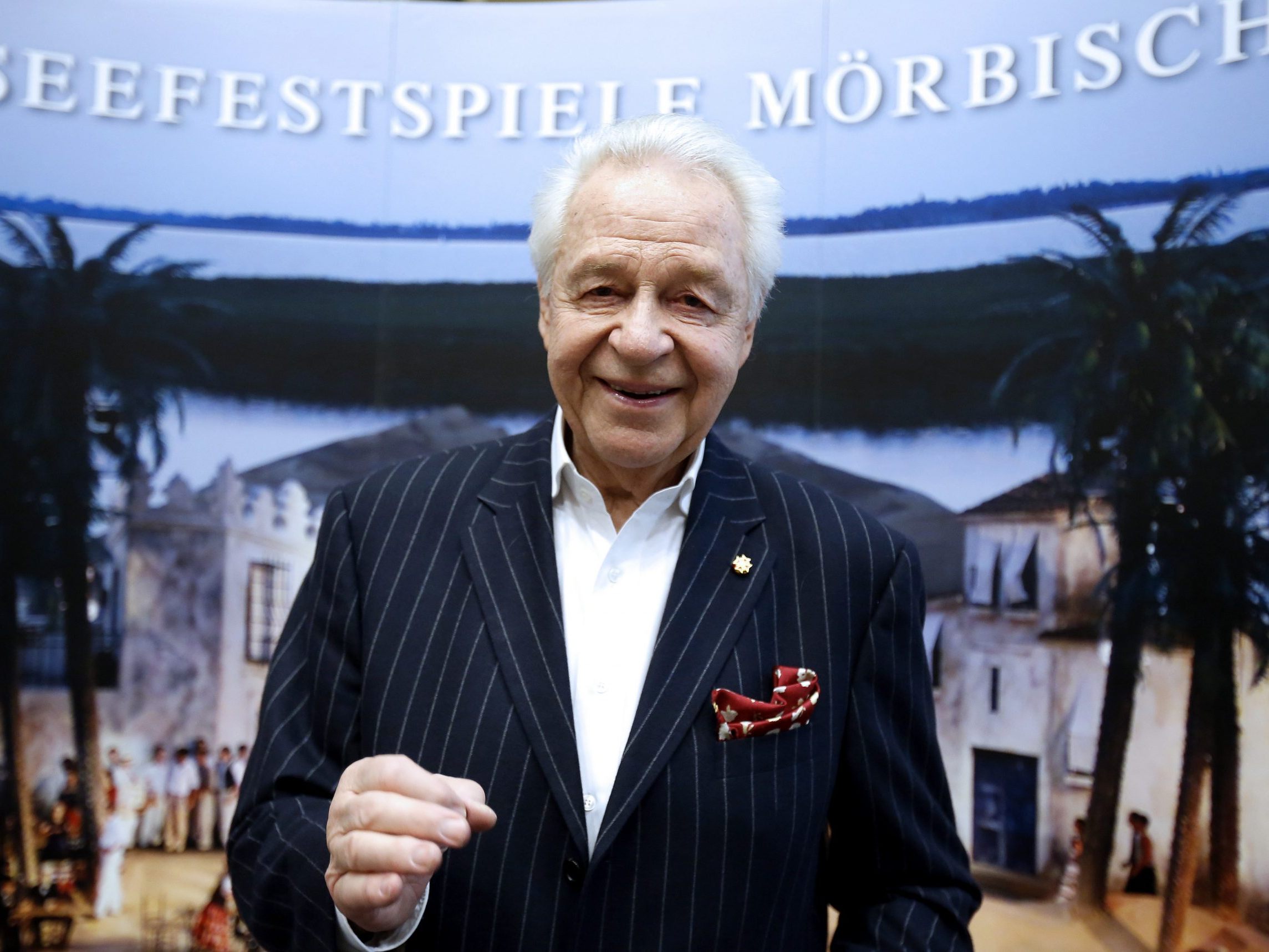Harald Serafin is dead: Austria loses a crowd favorite

As a "singing bon vivant," he shaped the Viennese operetta for decades, succeeded as an actor, and celebrated successes as the long-time director of the Mörbisch Lake Festival: In the early hours of Monday morning, Harald Serafin passed away at the age of 93. Thus, one of the country's great audience favorites, who was affectionately known as "Mister Wunderbar" since his time as a gentle "Dancing Stars" judge, has bid farewell to the stage of life forever.
Training as an Opera Singer
Harald Serafin was born on December 24, 1931, in Lithuania. His mother was from Salzburg, and she passed on her cheerful nature and the talent to "attract customers," as her son noted. From his father, an Italian, came the temperament, Serafin always repeated humorously. The parents fled to East Prussia after the Russian occupation of Lithuania in 1939. In 1944, they escaped the Russians again, joining a refugee trek to Bamberg, where the family settled and opened a textile business.
Serafin, who was supposed to become a doctor at his parents' request, dropped out of his studies after a few semesters. At some point, he found the right moment "to protest against the parents. It was a great moment of my growth. I became a man," he once told APA. Instead, Serafin fulfilled a dream and went to the University of Music in Berlin and the Conservatory in Nuremberg, where he trained as an opera singer (baritone).
After initial engagements in Switzerland and Germany, he was engaged for the June Festival at the Zurich Opera House. Through a television recording of the opera "Madame Bovary" performed there, in which Serafin sang the lead role alongside Anneliese Rothenberger, his later good friend Otto Schenk became aware of him. Schenk's production of the operetta classic "Die Fledermaus" with Serafin in the role of Eisenstein marked a turning point in the singer's artistic development and shaped him into the type that made him famous: the "singing bon vivant" of the operetta.
"Walter Matthau of the Viennese Operetta"
Serafin made operetta history with his portrayal of Danilo in "The Merry Widow," which he first performed in Schenk's production at the Frankfurt Opera. He would sing it over 1,700 times worldwide. Performances in numerous opera houses, concert tours in the USA and Japan followed, as well as record recordings and appearances on television shows. The "New York Times" referred to him, noting his physiognomy, as the "Walter Matthau of Viennese operetta," while Ginger Rogers saw him after a concert in London as the "Viennese Maurice Chevalier."
For operetta, he had to "change a little," admitted the Kammersänger, who described himself as a "deeply profound" person, once in an interview with APA. "A little bit like hop-hop and easy-going." The recipient of numerous awards (including the Cross of Honor for Science and Art, 2001, and the Gold Medal of Honor of the Federal Capital Vienna, 2007) never struggled with this, as the operetta genre fascinated him, "because it is the voice of the people. Musically accompanied, brilliantly accompanied."
In 1989, Serafin had to undergo vocal cord surgery and gave up singing for an extended period. In 1992, he took over the until then moderately successful operetta stage at Lake Neusiedl. During his tenure, he turned the Mörbisch Lake Festival into the proverbial "Mecca of operetta." Serafin revamped everything, had the stage, spectator stands, technology, and entrance area rebuilt and expanded, and brought more and more audiences to the northern Burgenland community year after year. Soon, up to 220,000 visitors came to Mörbisch per season.
Serafin also on the Lake Stage
Serafin often appeared on the lake stage himself. In his famously notorious speeches before premieres, the entertainer did not miss the opportunity to poke fun at attending politicians. After 20 years at the helm of the enterprise, Serafin stepped down in 2012 with "Die Fledermaus." In 2015, he received honorary membership of the Lake Festival. Serafin celebrated audience successes after his singing career also on the theater stage, often performing under the direction of Felix Dvorak. In 2015, he was seen in Helmuth Lohner's last directorial work in Bob Larbey's "Once Again Sunday" at the Kammerspiele of the Theater in der Josefstadt alongside Otto Schenk.
Serafin left a lasting mark on the Austrian collective TV consciousness with his jury role in the second season of the ORF celebrity dance show "Dancing Stars" in 2006: The "Wonderful" exclamations in his evaluations made him "Mister Wonderful" - and known as such to the younger audience. This nickname also flowed into the title of his autobiography in 2013, which was published under "Not Everything Was Wonderful" by Amalthea Verlag.
(APA/Red)
This article has been automatically translated, read the original article here.





